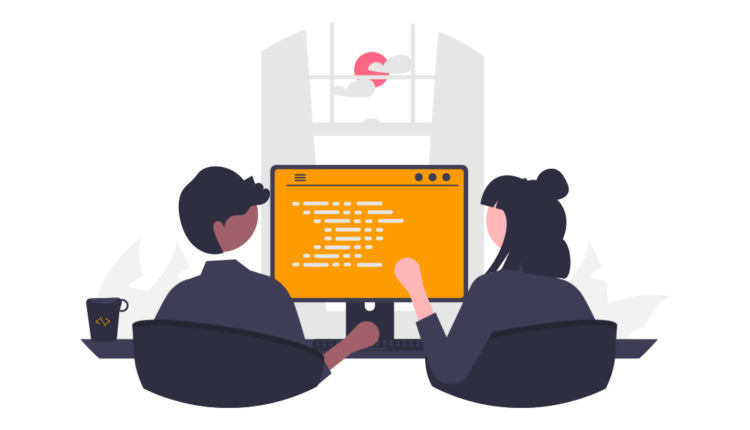In today’s fast-paced digital environment, advertisers and publishers have found imaginative ways to trade digital inventory, making the process more successful and profitable. Programmatic advertising, which allows for the automatic purchase and sale of online ad space, has changed the digital advertising environment. This essay will explain the four basic types of programmatic arrangements available to publishers in 2023, as well as their advantages and disadvantages.
Why Programmatic Deals Matter?
Because of programmatic advertising, trading digital inventory has become as dynamic as the stock market. It has given publishers more control and flexibility in selling ad space, as well as advertisers additional alternatives for targeting and optimization. However, not all impressions should be traded on an equal footing. As a result, numerous types of programmed transactions exist.
Open Auction (Real-Time Bidding)
This programmatic arrangement, also known as open exchange or real-time bidding (RTB), allows any qualifying buyers on a platform to bid on a publisher’s inventory in real time.
Advantages of Open Auction
– Excellent for Remnant Inventory: RTB allows publishers to monetize unsold ad units by making them available to a diverse spectrum of advertisers.
– Simple Setup: Unlike other automated approaches, setting up an open auction is simple. You only need to choose ad units, set a floor price, and add further auction criteria.
– Simple Optimisation: Because real-time auctions are fast-paced, publishers may see bids instantaneously and make modifications to the configuration as needed.
– Inventory Control: Publishers retain control over what types of ad creatives are placed and who has access to inventory details.
– Unlimited Revenue Potential: With the exception of seasonal swings, demand in open exchanges remains consistent.
– Niche Advertisers: In a global market, open auctions can assist publishers with niche content in finding suitable advertisers.
– Unsegmented Audience: DSPs’ targeting tactics benefit sites with a mix of demographic features, increasing the value of impressions.
Disadvantages of Open Auction
– Data Leakage: Because the bid request comprises a large amount of data, the risk of data leakage is increased. Data protection rules and security procedures, on the other hand, serve to limit this danger.
– Money-Back Guarantee: If the floor price is too high or the inventory is uninteresting to demand partners, it may not be sold.
– poor overall eCPMs: An overabundance of impressions in open exchanges can result in poor eCPMs for publishers.
– Malicious Ads: Open auctions expose inventories to attackers, who may then push malicious creatives. Identifying the source can be difficult.
Private Auction
A private auction (PMP), also known as a closed auction or invitation-only auction, is a real-time auction in which only invited purchasers can participate.
Advantages of Private Auction
– Transparency: Sellers and purchasers can identify each other during the exchange thanks to the deal ID.
– High CPM: Premium inventory and carefully selected advertisers result in higher CPM for publishers.
– Fraud Prevention: Dealing directly with the publisher and seller decreases the possibility of fraud.
– Automated: PMP transactions between DSPs and SSPs are automated, minimizing manual labor.
– Improved Buyer Relationships: Publishers and buyers can negotiate conditions and form strong bonds.
Disadvantages of Private Auction
– Difficulty Keeping High-Quality Inventory: Keeping high-quality inventory might be difficult, and you may need to negotiate a lower price.
– Pass Up Opportunities: Due to a lack of information, certain high-paying sponsors may not appear on the publisher’s list.
Preferred Deals
Preferred transactions, often known as spot buying or private access, allow one buyer to participate with ‘first look’ criteria and then select whether or not to buy.
Advantages of Preferred Deals
– Highly Targeted Ads: Impressions earned in favored deals are exposed to specified audiences, increasing their relevance.
– Improved Buyer Relationships: Direct negotiation and speculation aid in the development of relationships between publishers and buyers.
– Creative Control: Publishers have the ability to examine and approve campaign creatives in advance.
Drawbacks of Preferred Deals
– Low Fill Rate: Buyers have the option to cancel their subscription at any moment, which may result in inventory going to an open auction.
– Risk: Because there is less competition, impressions may be offered at a cheaper price.
Automated Guaranteed
This transaction, also known as programmatic guaranteed, involves a single buyer and promises a certain quantity of impressions for a predetermined fee.
Advantages of Automated Guaranteed
– Effective Use of Premium Inventory: This agreement enables publishers to sell ad units with high user interaction at a profit.
– Control and Transparency: One-on-one trading ensures control and transparency for both parties.
– Creative Control: Direct dealing allows publishers to request creative reviews before signing a deal.
Disadvantages of Automated Guaranteed
– Underselling: Due to targeting and viewability uncertainties, publishers may underprice inventory.
– Time-consuming: Despite automation, publishers require time to execute campaigns efficiently.
How to Build a Sustainable Advertising Business?
Understanding and leveraging these programmatic deals can assist publishers in developing a long-term advertising business. It enables them to command greater prices for their products while also strengthening connections with demand partners.
Frequently Asked Questions (FAQs)
Q1) What are the Four Types of Programmatic Deals?
– Open Auction RTB programmatic deal
– Private Auction
– Preferred Deal
– Automated Guaranteed
Q2) What is a Programmatic Direct Deal?
Programmatic Direct Deal allows publishers to negotiate both Programmatic Guaranteed and Preferred Deal in Ad Manager.
Q3) How is Programmatic Guaranteed Different from Preferred Deals?
Programmatic Guaranteed is when a buyer negotiates a price for inventory that’s reserved for them. The Preferred Deal is when the buyer negotiates a price for inventory that they can optionally buy.


